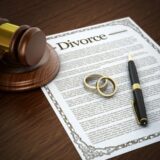Public places have owners and those owners have a duty to keep them safe. This means that if you have an accident in a public place, you may be able to make a claim against whoever owns it. Here is some guidance on what you should do.
Take notes on what happened and where it happened, supported by photographs
You need to establish what, exactly, happened and where it happened to establish who is potentially liable to pay you compensation. This is particularly important in shared public spaces. For example, if you’re in a shopping mall, then there is a very strong chance that each business will be responsible for the safety of their own designated area, but that the communal areas will be under separate management.
Usually, the easiest way to do this is through a combination of voice notes and photographs (maybe video). You want photos of the area of the incident, any damaged property (not just yours) and your injuries. If practical, see if you can use something for scale. If you choose to make written notes or drawings, then it’s advisable to photograph them as soon as you are finished as a precaution against them being lost, damaged or accidentally destroyed.
See if you can identify any potential witnesses and if so, try to get their names and some form of contact details. It’s very much preferable if these witnesses are independent. Be aware that witnesses may have concerns about giving their personal details to a stranger so you may have to content yourself with a name, even just a first name, and a social media handle.
If you can identify the owner of the location, for example, it’s a business, then ask if they have an accident book and if so then ask for the incident to be recorded in it. Make sure that it is recorded in a way with which you are happy. You may be given a copy of the record, if not see if you can photograph it.
Seek medical attention
Even if you’re more concerned about damage to your property than damage to your person, you should still visit a doctor or go to a hospital. There are two reasons for this. The first is that you want to capture any minor injuries before they become major ones. This generally makes them easier (and quicker) to treat. Secondly, it will give you a record you can use in any subsequent claim.
Keep all receipts related to this visit (including incidental ones such as transport) along with all records of your treatment. Keep any property damaged in the incident, you may need it as evidence and log any negative consequences you experienced and/or expenses you incurred as a result of the incident.
Turn your notes into a full written record of the incident
Do this as quickly as possible so that the details are fresh in your memory. Keep any photos or videos you took even if you think they’re not actually useful. Your lawyer may think otherwise.
Speak to a private lawyer
Always channel a request for compensation through a lawyer and never accept a settlement offer before speaking to a lawyer who works for you (i.e. not the other party’s insurance company).

